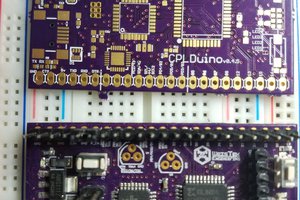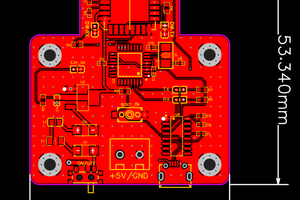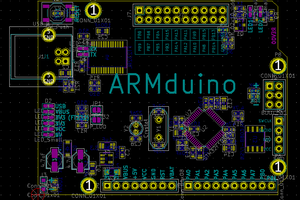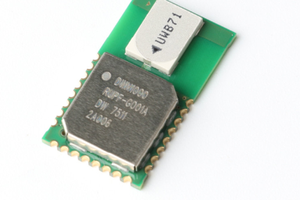eDOT core is a versatile Arduino board with built-in precision RTC. It has been originally designed to be employed with eDOT clock and the board fits perfectly inside the eDOT enclosure, but it is also suitable for custom made portable project (solar, etc.) where a very low power consumption is likely required. It features a very essential component layout that makes the board very compact. The board does not fit USB to TTL converter but just the interface connector; an external USB to TTL converter will be required to upload the Arduino sketches. In case of very low power application the power LED can be disconnected so that the total current will be less that 500 microamperes at 5V.
The board employs Atmega 328PU chip and DS3231 for real time clock functionality and has the back-up battery on board.
The board can be supplied up to 12VDC and has two on-board low drop regulators that provides 5VDC (SPI) and 3.3VDC (I2C) for optional external boards supply. The regulators may be easily replaced to fit custom supply voltages for both the ATMEGA and the external sensors.
The double layer PCB is professionally manufactured with metallized and gold plated holes, green paint and silkscreen.
The I/O connectors allow to access to the full ATMEGA 328PU functionality as follow:
- No.6 x Multipurpose digital I/O
- No.3 x Analog inputs with 10kohms pull-down resistor
- No.1 x LDR input
- No.1 x IR remote controller sensor
- No.1 x SPI port (5V)
- No.1 x I2C port (paralleled on two connectors - 3.3V)
- No.1 x ATMEGA 328PU programming port (by external USB to TTL converter)
Notes:
- I2C lines have not the pull-up resistors. The board have been designed to accommodate external breakout boards that already fits pull-up resistor. In case no external board are required the I2C lines may be pulled-up by an external terminator.
- For the board programming is required an external USB to TTL converter (RX,TX,DTR)
Board size: 75x45mm
SELLING NOW ON TINDIE:
https://www.tindie.com/products/antiElectron/edot-core-a-bit-more-than-an-arduino-uno-board/
 antiElectron
antiElectron
 Jeremy g.
Jeremy g.
 Omaraittaara
Omaraittaara

 Ibrahim KHADRAOUI
Ibrahim KHADRAOUI